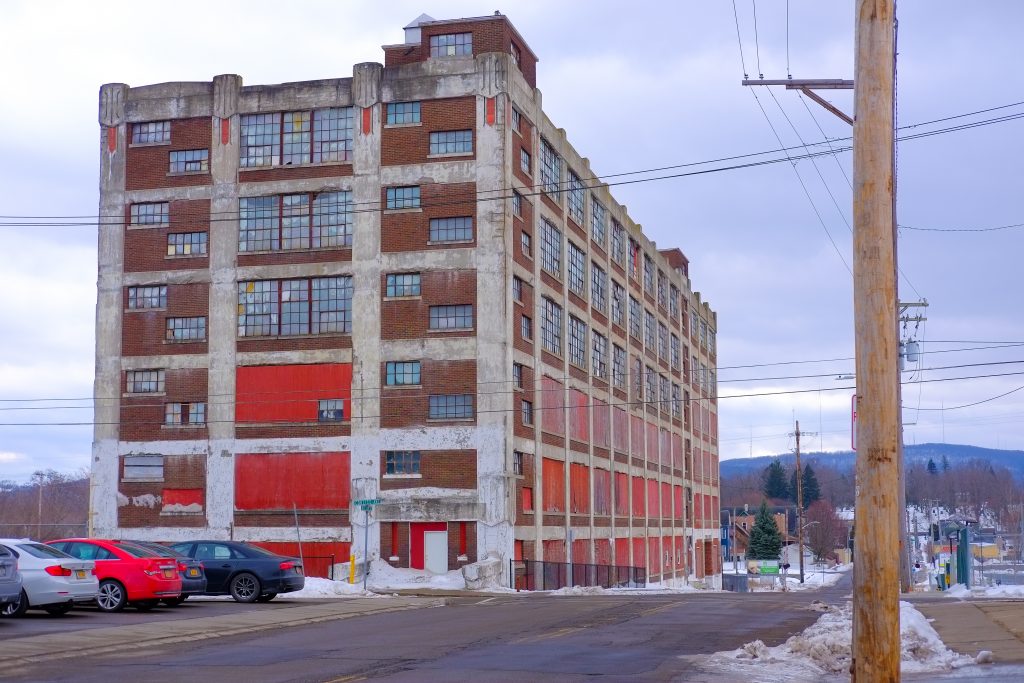With an extra $30 million in funding from New York state, Binghamton University is on its way to completing the Health Sciences Campus in Johnson City.
The funding, which will help complete the Decker School of Nursing relocation at 48 Corliss Ave., is part of the Southern Tier Upstate Revitalization Initiative (URI) that was created by Governor Andrew Cuomo in 2015.
According to University President Harvey Stenger, the funding will aid in finalizing the construction of the campus, a project that the state has committed $160 million to in an effort to improve the economy of its Southern Tier region. New York state has invested $6.2 billion in the Southern Tier since 2012, according to a press release published by Empire State Development.
“The $30 million will allow us to build, rehabilitate and equip buildings on our Health Sciences Campus and get us across the finish line,” Stenger said.
The Southern Tier URI, co-chaired by Stenger, aims to generate economic growth within the region. According to the URI plan, one of the main initiatives is to build the Greater Binghamton innovation ecosystem by creating three innovation districts, including the Johnson City Health and Cultural District.
Ryan Yarosh, senior director of media and public relations, wrote in an email that the $30 million will be used to finish renovating the floors of 48 Corliss Ave., which will feature classroom, laboratory, simulation and research space. Additionally, the 93,000-square-foot building and 20,000-square-foot addition will have a food court, lounge and library.
The $30 million awarded to the University follows an initial award of $21 million the University received in URI funding to renovate the Decker School of Nursing building. Additionally, the New York state budget allocated $60 million in funding to complete the School of Pharmacy and Pharmaceutical Sciences (SOPPS), which opened in July 2018.
Following the initial construction of the Health Sciences Campus, faculty and students in the geography department at BU created the Johnson City Revitalization Project in an effort to track the demographics of Johnson City as well as other data related to the economic revitalization of the city. Through this collection of data, the project will track the impact of the campus on the Johnson City economy and the potential gentrification that could take place.
In a video compilation published in September 2018, the Johnson City Revitalization Project interviewed local residents about its thoughts about the new Health Sciences Campus. While some had positive attitudes toward the new campus, others expressed concerns including the potential rise in student renters and displacement of current residents due to a potential rise in rents and impacts of gentrification.
John Frazier, the team leader for the Johnson City Revitalization Project and a SUNY distinguished service professor of geography, wrote in an email that while the campus is still in its early stages and some have expressed concerns, local businesses have reacted positively so far.
“We must remember that the Health Sciences Campus is in its infancy,” Frazier wrote. “The first class to use the Pharmacy School occurred in fall 2018. There is much more to come. That said, what we have noticed is a new spirit of hope and expectation among small businesses on Main Street. Our observations are anecdotal but suggest growing positive attitudes by merchants and by new entrepreneurial landlords who are investing in upgraded apartments.”
Yarosh wrote that the location of the Decker School of Nursing and SOPPS will help create a collaborative environment across different disciplines and is set to open in 2020.
“Locating these schools and programs on a single campus will facilitate research and education, bringing together pharmacists, scientists, nurses and social workers who will expand curricular offerings into new, allied health programs and solve challenging healthcare problems,” Yarosh said.



